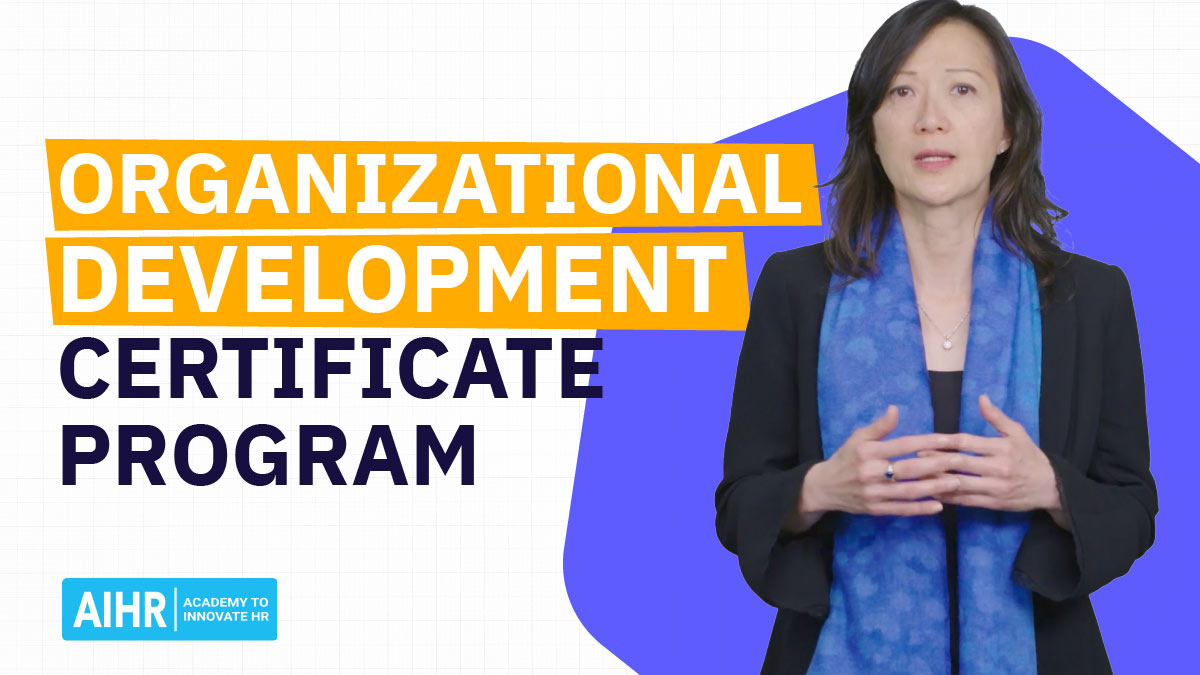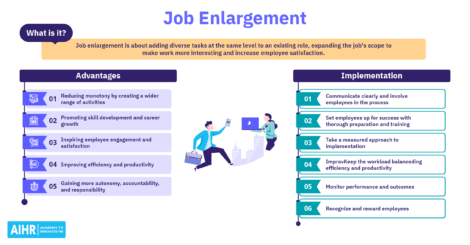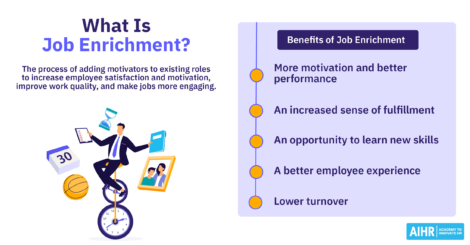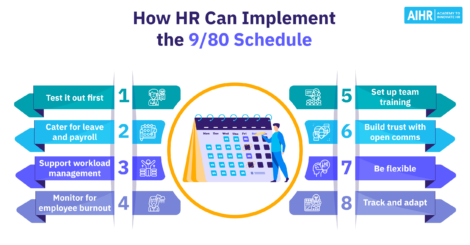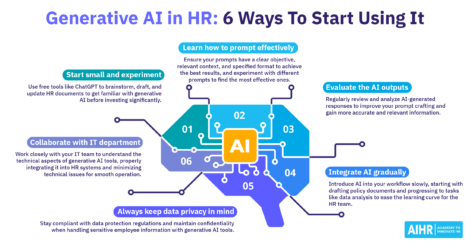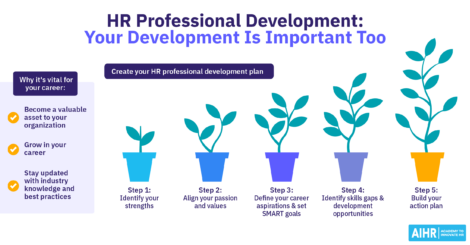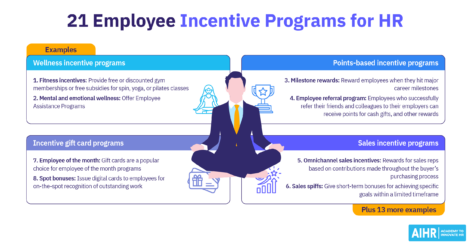Welcome to another episode of All About HR! The podcast & video series for all HR Professionals and business leaders who want to future-proof their organizations and learn the latest trends & insights from industry experts, CHROs, and thought leaders.
Joining us today is Anna Buber, Chief People and Culture Officer at Zip Co. Anna is an Organizational Development and HR leader who has helped executive leaders in companies like Google to build outstanding cultures focused on mission and growth
The topic of today’s episode is all about Organizational Development – specifically on creating and maintaining an engaging culture, and building your team for scale.
In this episode, we’ll talk about:
- Leap of faith: how companies can mitigate uncertainties
- Finding the right balance between data-driven and intuitive decision-makings
- Key elements of an engaging organizational culture
- Keeping the culture alive: How to walk the walk when it comes to company values
- Building a people team for scale-ups
Watch the full video to find out everything you need to know about building an engaging organizational culture and a scale-up team of the future.
Transcript:
Neelie Verlinden: Hi, everyone, and welcome to a brand new episode of All about HR. And today I’m joined by Anna Buber. And she’s joining us from Australia. Hi, Anna, how are you?
Anna Buber: Hi, I’m all good. Thank you. Thanks for having me.
Neelie Verlinden: Yeah, I’m super happy to have you. So, Anna, let me introduce you briefly. And then you can say a few words about yourself, of course. So Anna is the chief people and culture officer at Zip Co. and Zip is an Australian FinTech company. Anna, perhaps you can say a few words about yourself and Zip as well.
Anna Buber: Oh, absolutely. Thank you for that. So we’re actually a global digital payments experience, hoping to become the best Australian company in the world. I joined it about year ago, leaving Google after almost a decade, to work very, very closely with Larry and Pete, our founders, to really establish the best Australian brand, globally. That’s a little bit about me and our mission and vision, we are here to be the first payment choice every day for everyone.
Neelie Verlinden: Nice. Nice. Okay. And so I thought for today’s conversation, I saw an article of yours not too long ago. And the title of the article really resonated with me. It was what’s stopping you from taking a leap of faith. Now, I thought we could definitely explore that today, starting with your own leap of faith, because you left Google at a time where people just started to worry about COVID and things that were happening in the world. And you still decided to make the decision and join that. Maybe you can tell us a little bit about what drove you to make that decision, or there are actually a few things there.
Anna Buber: So first of all, we are a founder-led company and I was really, really excited and looking forward to working with both Larry bead, I think they’re amazing value driven people and quite different from one another. And it’s an extraordinary experience to work with both of them. Again, Google, some would say the best company in the world. I’ve definitely enjoyed quite a few amazing, interesting roles there across different markets, different teams, I was definitely ready to get my hands dirty again and start creating things from scratch. And a founder-led business was definitely the right leap of faith for me. I could tell you that I probably learned more in the last 18 months, with Zip than I would say six years at Google because definitely different learning experiences. But here, I was really able to help the company through the COVID times, to really support leaders and employees through the more challenging times, but also through an amazing amount of growth, and expansion for Zip. And that I was really able to take my ex Google toolkit or backpack that I’m carrying with me with pride, and to really implement them here and for all our sponsors globally. So really, really proud of myself that I have the courage to take that on. But also for sticking with it longer term. It’s been an amazing 18 months. And I’m proud to be here, I imagine.
Neelie Verlinden: Yes. I mean, all the challenges that COVID has brought. I think it is, in a way, also a very exciting time to be joining a company as you did. I think we’ll touch on that a little bit later on today as well. So I would definitely come back to that to explore it a little bit further. First, though, Anna, if we look at companies, as we said, the past year has been crazy. So many companies, they can feel that in a way, they are now having to take a leap of faith on their own as well. But that obviously also comes with risk. Maybe from your own experience, also at Zip, have you got something to say about how companies could perhaps mitigate that risk a little bit when it comes to taking a leap of faith?
Anna Buber: So I would definitely say that for me personally, dreaming big is a skill that you need to have if you are striving to become bigger and better than you currently are. And when you have that dream and a compelling vision that drives you, you can really rarely make huge mistakes. Obviously we will have bumps in the road, but I would like to look at them as detours versus the end of the road. And if you’re thinking about things from a kind of expensive lens while dreaming big and thriving for tomorrow. I think you mitigate that risk through a larger and bigger vision. I would definitely say that your people will be the people who will stand by you when it comes to taking chances. So being tolerant to failures and making mistakes and celebrating losses is a huge skill to have as an organization and as its leadership team. And the last thing I would say is to have trust and faith in a better tomorrow. I know it sounds a bit woowoo. But I have a strong belief in that, to really know that even if today was hard, tomorrow is yet to come, and it will be better. And if you know that, it’s not yet the road for you, and tomorrow will come, you’ll have another chance to get up and try again. So mitigating risk is all going great. And I know that in the chart, we have compliance, mitigation techniques, etc. I’m a big believer in them, dream big, and act bold, as much as you can.
Neelie Verlinden: Nice. I like that. I like that. And I like the positivity URL as well around that. Now, here’s another thing that I’m wondering about. And it’s when we talk about companies HR, we’re all about being data driven and making data driven decisions. And yet, perhaps they should always still be a little bit of that gut feeling involved. What are your thoughts on that? That right combination between making data driven decisions as an organization and, and gut feeling.
Anna Buber: So again, coming from Google, Google is a very data driven company, we rarely made any decisions without data. I definitely brought that. This app, we have quite substantial people analytics capabilities. And we are collecting data, robust data, on a daily basis, whether through the people partner function, engagement, surveys, polls, checks, and cetera. This being said, you know, how you sometimes can look at the spreadsheet and be like: Well, the problem is, I just cannot find it quite quickly. I do believe that, especially for us, those who have been here for a while and have a lot of experience, we know in our gut where the data is telling us. So combining the two is critically important. I can tell you that I’ve made decisions based on data in the past that was wrong. And it was really rarely wrong when I followed my gut. So I would definitely encourage leaders across the board. If something tells you that something is off, it usually is. So listening to both is important. Continue collecting data, definitely listen to your employees, different stakeholders and absolutely use data to educate yourself in your decision making process. But your gut will rarely be wrong.
Neelie Verlinden: Yeah. And I believe you had a really, really beautiful example of that at Zip, because this is what you recently implemented. In terms of leave, I think about miscarriage was another really good example.
Anna Buber: So we’ve launched a global policy around post miscarriage and abortion support for all our staff regardless of the year or the location across the globe. And interestingly, that idea came to me over one of my long weekends. It was quite random. And I had a gut feel that this is going to be big and impact the world. And obviously, we have data to show that every one of four women experienced miscarriages. And obviously, even if we’re supporting not only those women who experienced it themselves, but also their partners, we will have a tremendous impact on the organization. But we also obviously had a call out to other companies to follow us in this process. I had a gut feeling it’s going to be huge. I didn’t have enough data to support that. And I did follow my gut on that. That was probably one of the more impactful things launched in Australia from an employee perspective till today. And that’s from the perspective that other companies don’t support employees during their time of grief because people don’t talk about it and almost launch it as a family support system. I think that having an open and honest conversation around bereavement during or post miscarriages is critical for the healing of the women that have experienced that loss and their partners as well. And I think that this is where we changed the world. And that was not based on robust data that came from employee engagement surveys. It was more of this might have something, let’s give it a try.
Neelie Verlinden: Yeah, exactly. In a way, I think we could say that that was driven by common sense. I’m not sure if it’s the right term, but it’s just thinking about us as humans and what might be valuable for us. So I think this is a fantastic example of how sometimes when there’s an initiative that more comes from a gut feeling can definitely have a tremendous impact and then probably the positive data around that will come afterwards. Thank you. Thank you for sharing that. I’d like to slightly change tack here and explore a little bit the building of an engaging culture. And so first of all, how would you describe a culture that engages? What are some key elements in that kind of culture?
Anna Buber: I think that engagement and engaging culture would be a culture in which leaders and everyone in an organization walk their walk. I’ve seen quite a few examples in my career, not necessarily Google where I work, but through my networks where people can like, What does Google do? What does Netflix do? Let’s just settle with co-creating with a big tech company. Instead of what do we stand for? What do we care about? And how do we bring it to life? People almost don’t trust themselves in that space. For me personally, and I’ve been lucky enough to be a part of amazingly engaging cultures. And these cultures are literally walking their walk on a daily basis. So if we say we’re stronger together, then the founders are stronger together with a business every single day. If we say we’re going to change the game, we are changing the game both in product and in people practices, and everything we do on a daily basis. Something that I tell to my team every single day that I joined them to build the best company in the world. And everything that I do on a weekly basis feeds into that mission, everything that doesn’t fit into that mission, I would already prioritize or not. Everything that we do as a team is to fit into the same mission. So if you wake up in the morning, have so many things on what would build the best company in the world, what can I do to contribute to that vision, and I would leave that every single day. So the only thing that is one of the only tips I actually gave my leaders is that you need to walk your walk. And when my founders and I’m lucky enough to work with the two that do walk the walk on a weekly, monthly and daily basis, it’s really easy almost, to create an engaging culture that employees love, recommend and thrive.
Neelie Verlinden: Would you say that the pandemic has made it more challenging to make sure that people are walking the walk and to really keep that culture alive?
Anna Buber: I think the pandemic made the connection or the human connection more challenging than in the past. At Zip, specifically, is a very engaging and interpersonal culture. And bringing that to life or keeping that alive remotely was more challenging than in person when the founders walk the walk and chat to everyone, ask the names of people that have never met, and what they do have a seat next to them and have coffee together during the all hands present in an open office theater going away. It is harder on zoom. Absolutely. And I also strongly believe and again, in Australia, very, very lucky when we did have the opportunity to reopen the offices. The offices filled up with people quite quickly. Because this is where our passion lives. We are heading into a world that will create different experiences. And we will continue managing differently and leading differently. We’ll definitely need to make sure that we continue creating an inclusive culture with those who work remotely or can work only remotely feel included and empowered. And don’t feel like a second class citizen. But I do believe that we are a long way away from creating an identical experience remotely compared to the one that we can actually create in person. But we’re definitely in a space where we have a hybrid workforce. And we’re definitely trying to implement tools, practices and rituals that will help us keep it alive.
Neelie Verlinden: Yeah. Yeah, I think that’s a good point. I think it makes sense at the same time that we don’t have the same experience yet, remotely as we did in person, because this is still relatively new, of course, for most of us. So I think we should also be kind to ourselves and give ourselves a little bit of time to get there in the end. Now Anna, I was wondering as well, how do you from, let’s say people team perspective, put the emphasis as well on the importance of everyone living the values that you have in the company?
Anna Buber: So I could definitely share with you on how we bring the values to life at Zip, and then specifically touch upon the way I choose to run my team. So when it comes to Zip, the how we work together and our values are crucially important, both founders, the leadership team, but also the Zip service. And you can’t really talk that talk without walking the walk. And this is why we hire against our values. But we also manage people against our values, and our performance processes run at a 50/50 ratio. 50% is whether it’s how many sales you’ve made, what kind of code you wrote, the quality of the code, the speed of the coding or code reviews, etc. And the other 50% is how you work, how you change the game, how you support your colleagues, how you own your problem and could have lived up to the challenges et cetera. And all these values are evaluated by the leaders, both visitors and leaders, and our eventual or the end goal from a performance review. Cycle rating will incorporate 50% of the what but also at the 50% of the how, and this is how we rate employees across the globe. As I’ve mentioned, at Zip we want to walk the walk, and we just say, well, values are important, they’re important, but they are as important as anything else that we do. Now, from my personal perspective, and how I choose to work, the How is more important than the what and I can tell you that those people who have outstanding performance are on my team. They’re outstanding on their how, how we change the game, how innovative they are, how they support their colleagues, helping their own new innovative ideas of taking ownership, just running their own race, changing the world and helping me change the world, the founders, people who have chosen to leave the team or lead the team into performance issues, were actually gapping on how those people who didn’t choose to support their colleagues or chose to be almost an independent eyelid of success, that is actually not going to work on teams, that eyelid globally. And stronger together is one of the more crucial values that I have, both in hiring the people on the team, but also the way I lead. And the reason being is that I would love for the team to be inclusive and supportive without me being there. And being a global leader, I can be in all geographies at all times. And as I empower leaders on my team to create the right culture, I think that the stronger together and changing the game will be crucial values for us. And I definitely hold them sacred when it comes to my team.
Neelie Verlinden: Yeah, yeah, thank you for that. But I think this is a really, really great way to make sure that it’s not just talking about values, as you say, and it’s not just slapping them against the wall, so that they look pretty, but it’s actually making sure that they are being lift and that people are encouraged, actively encouraged, actually, to live those values. So I really like this way of going about performance management, so to speak. And another thing that I really want to talk to you about was building for scale. And this comes back to the article of yours that I talked about earlier, because you mentioned that when it comes to building for scale, you learnt a lot of things, but two things that you learn were to hire the best and to build a senior team. And what I wanted to start with here is that as I scale up is not necessarily always easy to hire, the best talent company can still be relatively unknown. So people, in a way take their word as again, a leap of faith, how can you still attract top talent, then?
Anna Buber: I think at the beginning of this interview, we’re talking about dreaming big and betting hard. I, as I mentioned, walk my walk on a daily basis. And I strongly believe that we will build the best company in the world. And I believe that people who join us will have the best opportunity to build the most amazing careers of their lives. And that’s the way we attract talent. So as you mentioned, we’re not Google and Facebook, so the brand is digitally less known in other markets. And yet in the last 18 months as I’ve been here, we’re able to attract outstanding talent and that is thanks to being an innovative hub that empowers everyone to ship, sell, and build outstanding careers. We are quite transparent around what is possible. During our interview process, we hire against the why but also against how and when people see that our values are critically important for us. We inspire them to dream big with us and in a war for talent when it comes to the tech space here in Australia becomes tighter and tighter the fullest quite small. You won’t be able to win on compensation or free breakfast. You can only win by creating meaningful opportunities for people to really have an impact and thrive to be the best and yes we are also not for everyone so people who would like to have a more comfortable and I would say potentially more balanced work life with the classic nine to five with a gym at the office will definitely not choose the employee of choice, but people who are here to build innovative product products and really make a difference in the world and creating a debt free society that allows them to responsibly lend, but also repay and to learn how to be financially responsible, I definitely think that we are able and will continue attracting the best people for us in the market.
Neelie Verlinden: Yeah, and you know, and I think what you said about we’re not for everyone, I think that’s not a bad thing. I mean, no company is for everyone. What I think is important here is that you’re transparent. And by what you’re saying, you are being transparent about it, because I don’t think it does anyone any good, not the candidate. And also, of course, not the company, if you are creating these expectations about working somewhere that are not what it is actually like. So I don’t think it’s a bad thing that you’re not sure everyone does. That goes for all companies, as long as you think I think you’re honest about it.
Anna Buber: Yes, we are absolutely fully transparent. In our hiring process against the expectations, the pace of Zip, the amount of things that are happening here simultaneously. Absolutely. And I think that when you’re working for a high growth scale up globally, you do have the opportunity to create amazing things and build amazing things and create them without too many bureaucratic processes in place as well. For me personally, it’s a huge, huge win. And you also need to be comfortable with the pace of the company. That is we’re moving the base to ship things. And some things that I do here in weeks would have taken me years at Google or a Commonwealth Bank. But we are not Google or Commonwealth Bank. We’re moving the Zip patient, people who join us to be comfortable with that and embrace that as much as they embrace innovation as well.
Neelie Verlinden: Absolutely. Coming back, one more time to build and to be intentional about building that senior team, because I can absolutely see the advantages of that. Because people are self-sufficient. They are experts in their field. At the same time. I think hiring senior people, there are maybe some elements as well that you are more mindful of, can you tell us something about that?
Anna Buber: So I think Zip has been on the journey of building a global executive leadership team for a while now. And again, it’s representative of where the company is. From a growth and maturity perspective. We are still in a rebuilding phase when it comes to the global exec across the board. This being said, I personally believe as a people leader, that building an efficient and collaborative executive leadership team that can drive the company towards its North Star is critically important for both our company and any company at our size and scale. A huge market cap as Zip listed, definitely needs leaders that are based in Australia and our major markets such as New York and the UK to join us and continue continuing the way in the space. We’re in the market for key critical roles as we speak. Global CTO just signed his offer starting in a couple of weeks. We’re hiring a general counselor that will support Peter Gray, one of our co founders, when it comes to our legal and compliance. We’re building our legal and compliance functions. We are starting to mature as a company and these functions will be crucially important for us as we scale into the future. We are growing through acquisition as well as organic growth and key hires in the tech and product space. But also in the more by compliance legal space will be critical for us as well. And as we come together as a leadership team and help again, for me and my vision to build the best company in the world. We need those people at the table to help us do that. This being said, our zip stirs are outstandingly amazing humans and try the company of the future without actually having these leaders and I believe I was the first people or executive people leader at the table. After the company has been established and now existing for seven years, I do believe that my job could have potentially been easier if I joined earlier. But you know, without the other end, I probably would have joined earlier. So here it goes like a chicken and an egg, you really need to find the right time. And when you bring the right leaders on board. And the last tip that I would give companies at our size and scale is hire for the future. Don’t bring the leaders unique now bring the leaders that you need five years from now to help you get there. There’s a great saying that I probably have seen on Instagram. If you want to get from point A to point B you need to become the person at point b. So you really need to hire the leaders for where you want to go versus where you’re at right now. And yes, it does require investment, as well as an ability to take them on the journey. But again, critically important for us as a company and for companies out there as well.
Neelie Verlinden: Yeah, absolutely. And circling back to that leap of faith one more time. And then we have a leap of faith versus, let’s say, informed decisions. What has technology played in your process of scaling the company? A few words on that maybe?
Anna Buber: We actually have been scaling the company without a tech stack. So obviously, we have a hugely innovative product, that product stack, and that we have two main stacks that are now operating for us probably actually a bit more. So the people tech stack is being rebuilt as we speak, we’re actually scaled quite rapidly without having the proper infrastructure in place. We’ve recently launched Bamboo HR to be our global HR, and Latas, to manage our performance, review process, etc. I’m looking into a customized communication platform that was designed by Laszlo Bock, who was head of people and culture at Google for many, many years. Laszlo is a dear friend, and he is designing an outstanding product that I’m hoping to launch at Zip soon, it’s still coming together. So you can do it without having a solid tech stack in place. It is harder and less scalable. And I’m feeling the pain of it as we speak. But it’s doable. It’s doable, and it is possible. The one thing that I would say to people, leaders and to business leaders, if you don’t have a people person in place, do not compromise on your tech stack. It’s better for you to not have anything in place than to have something that doesn’t work. And I have seen mistakes being made here prior to my joining. And switching systems is harder than reintroducing a proper one, when you’re ready to scale. And yes, you know, I wish I could have a work day but you know, $5 million is a huge investment. So that for everyone, but making the right decisions at the right times. That’s what I would say, for the tech stack. I am in the market for people operations lead. So definitely someone that I will need five years from now. So investing today, critically important. And hopefully that leader will be able to bring this together for us as a cohesive employee experience. But again, important. But you can win without it.
Neelie Verlinden: Yeah, really great message again, you can win without it. And also, I think the second key message here is, don’t compromise. Now, Anna, this is absolutely the last part of our conversation. What we like to do with our guests always is to ask them to share either an epic win, or an epic fail with us because our show is all about HR. It’s all about what we can learn from each other’s experiences. And can we share some learning moments that can help others? Or that can be funny or inspiring? So yeah, can I ask you what kind of epic fail or epic win would you like to share with us?
Anna Buber: I’ll share, I’ll share both
Neelie Verlinden: Oh, nice.
Anna Buber: So from an epic failure perspective, I’ll use some of my parenting learnings. I have two beautiful kids and my little girl, who is so little, is now turning 12 and behaving as if she’s 17. So she’s already five years in the future, and here you go, she’s building to scale. And I, as a mother, I have this tendency of, and again, based on my past experience of trying to create the best environment for her like, you know, the best schools, the best, you know, friend group, the best, whatever, and at times, our children have their own choices at the home or their own wishes that that certainly are aligned with ours. And I have found myself almost trying to not force my decision on her but convince her to, you know, to go to the private school because it is such a better choice. And she made it quite clear to me that she has her own lifelong choices. And she would like to make those decisions herself. And I think that we have a tendency as parents, but also as leaders who you know, we’ve been around, we’ve known what’s worked, we know that the butcher is the best. And yet, even the most young and inexperienced employees on our teams, have and should have the empowerment and the ability to make their own choices on how they leave their careers, how they manage themselves and cetera. So four sigma was our view. There will not be helpful and that’s kind of my learning as a parent and one of the smartest things won’t leave us here. Don’t treat people how you would like to be treated, treat them how they would like to be treated. So that’s definitely learning from me. And on my I’d say greatest success, I’ll go back to my leap of faith. As soon as you have made a decision, and you know that it’s the right decision for you, just leave and never look back. And going back to your first question, leaving Google in the midst of COVID, etc. I actually left before COVID. And then my biggest success with myself actually is staying with Zip. So as soon as you burn your bridges, burn your boats, there’s no turning back. And, you know, I’m glad I stick with it. And I’m glad I’m here. So I definitely believe that this was your jumping? Just believe in yourself and move forward. That’s it for me.
Neelie Verlinden: Well, that was kind of the perfect ending to our conversation. And thank you so much for sharing that. And that’s it for us today. Thank you everyone for listening. Don’t forget, as always, to subscribe to the channel. Hit that notification bell and like this video. Thank you so much. And see you again next week. Bye.





